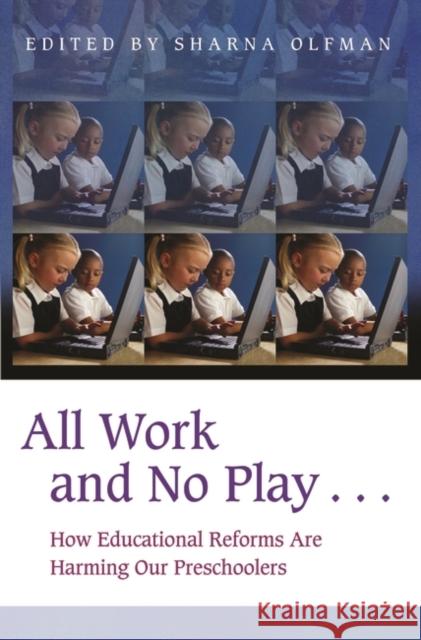All Work and No Play...: How Educational Reforms Are Harming Our Preschoolers » książka
All Work and No Play...: How Educational Reforms Are Harming Our Preschoolers
ISBN-13: 9780275977689 / Angielski / Twarda / 2003 / 224 str.
Educators, neurologists, and psychologists explain how the high-stakes testing movement, and the race to wire classrooms, is actually stunting our children's intellects, blocking brain development and sometimes fueling mental illness. These experts, including a Pulitzer-Prize nominee, explain why play is not a luxury, but rather a necessity of learning.
Testing and technology has become a mantra in American schools, reaching down as far as kindergarten and preschool as politicians and policymakers aim to ensure that our country has a competitive edge in today's information-based economy. But top educators and child development experts are battling such reforms. Here, educators, neurologists, and psychologists explain how the high-stakes testing movement, and the race to wire classrooms, is actually stunting our children's intellects, blocking brain development and sometimes fueling mental illness. These experts, including a Pulitzer-Prize nominee, explain why play is not a luxury, but rather a necessity of learning.
This book also spotlights a program at Yale University that, in response to the dearth of play in preschool curricula, emphasized learning through play for youngsters. Children who participated scored significantly higher on tests of school readiness. In addition, an internationally recognized expert explains why--in striking contrast to U.S. policies starting academics in preschool--several European countries are raising the age when they begin formal schooling to 6 or 7.











